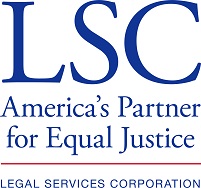Table of Contents
Deeding Your House
Your home is often your largest asset. Before giving this up by deeding it to your children or someone else, understand the risks involved. Deeding your house to someone else could create major problems for your health, wealth, and security.
Here are some of the reasons why deeding your home to someone else is a bad idea:
- You no longer own your house.
- You could leave out some of your heirs.
- You could be ineligible for Medicaid and other benefits.
- The person you deed the home to may have to pay a lot in taxes.
Instead of deeding your house to someone else, you can write a will that gives ownership of your home to that person after your death. If you have a very large estate, contact an estate planning attorney for specific advice on your situation.
Why will deeding my house mean I will no longer own my house?
A deed is a legally binding document that changes the ownership of your home. Once recorded, ownership cannot again be changed unless another deed is created. This requires the agreement and signatures of all the owners. If you sign a deed and give away all or part ownership, you cannot get it back unless the new owner agrees to it.
If you give away full ownership, the new owner can evict you from the property or sell the property, no matter what you say. Even though you may trust that your children would not sell the house while you are living in it, they may not have a choice. When you deed a house to someone else, debt collectors could take your house to satisfy the debt of that person, even if you are living there.
Some people try to avoid these risks by not recording the deed with the County and waiting for it to be found and recorded after their death. If you do this, the deed could be found invalid. Some people also try to avoid these risks by keeping a life estate. If you keep a life estate for yourself, you will have some protection, but there is no guarantee.
How can deeding my house leave out some of my heirs?
By deeding joint ownership in your property to any person (including one of your children), your other heirs have no legal claim on the property. Upon your death, the person named as joint owner will own the property outright, even if your will says otherwise. An oral agreement between you and your child to distribute the property to others is not legally binding.
What are the tax consequences of deeding my house?
Although you may not have tax problems, the person you deed your home to may have to pay a large tax if the home is sold. This is called a capital gains tax.
Suppose you bought your home for $50,000, but the value has increased to $200,000. If you deed the home to someone else, that person may get a large tax bill when they sell the home. If the home is sold for $200,000, that person would have to pay a capital gains tax on $150,000 (the sale price minus your original purchase price). This means the person you deed your home to may have to pay tens of thousands of dollars in taxes when the home is sold.
The rules for capital gains taxes are different if a person inherits the home after your death. Instead of deeding your home to someone else, consider leaving the home to that person in your will. Giving the home to someone in a will may help that person lessen or avoid these high taxes.
How will deeding my house affect my Medicaid eligibility?
If you deed your house to someone else for less than fair market value, you could be ineligible for Medicaid. If you apply for Medicaid within five years of deeding your house away, you could be ineligible for a certain period of time. This could be a big problem if you need to go to a nursing home or need medical care that Medicare will not pay for and you cannot afford. Deeding your house away may also affect your eligibility for other benefits and programs.
What should I do instead of deeding my house?
This is not an easy question to answer because every situation is different. Generally, writing a will that transfers ownership of your home to those you choose after your death is the best option. Unlike a deed, a will can be changed fairly easily. It also may be safer for you and less costly for the person getting the house. A will may not be the best option for people with large estates or special needs. Because each situation is different you should contact an estate planning attorney to guide you through the options.
But isn't it worth deeding my house to avoid probate?
Again, that depends on your situation. Except for people with large estates or those with special needs, probate may be the best option. There are many advantages to probate that work for most people. Probate is not as expensive or complicated as it was in the past. Again, because each situation is different you should contact an estate planning attorney to guide you through the options.

